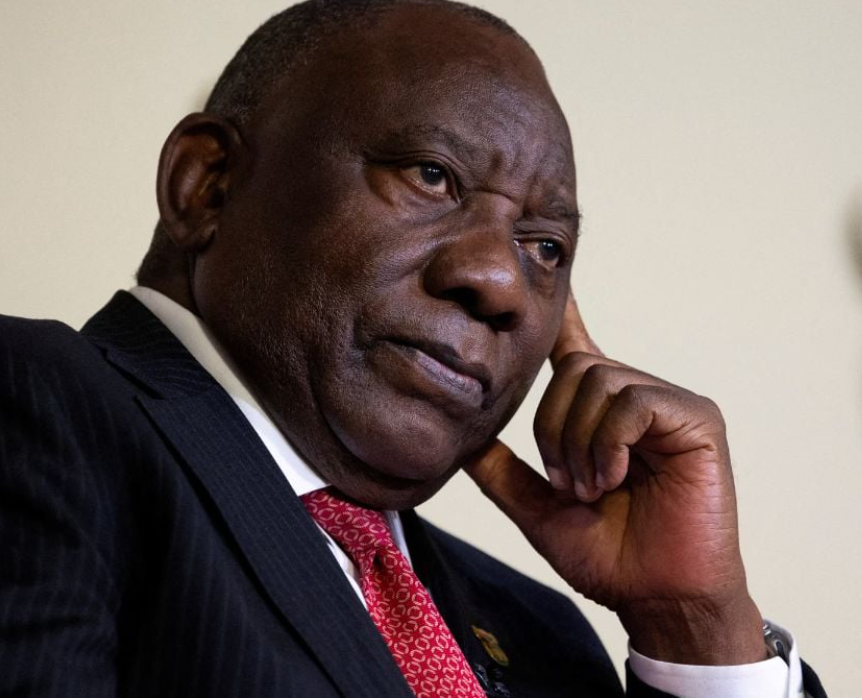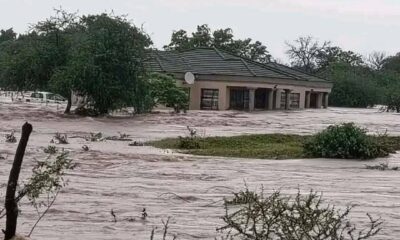News
Ramaphosa Concedes Flaws in Expropriation Act as Legal Battle Escalates

Ramaphosa Concedes Flaws in Expropriation Act as Legal Battle Escalates
President Cyril Ramaphosa has quietly admitted something his administration has spent years downplaying parts of the new Expropriation Act are, in fact, unconstitutional. This revelation is now on record in his official court affidavit, and it’s thrown petrol on an already charged political fire.
What Exactly Is Unconstitutional?
Ramaphosa’s admission centres on Sections 19(2), (3) and (4) of the Act. He acknowledges that these clauses were mistakenly drafted in a way that allows land to be expropriated before the affected owner can challenge the decision in court. He further concedes that the wording could make the provisions “void for vagueness” and out of step with other parts of the same law.
Rather than withdrawing the legislation, Ramaphosa has asked the Cape Town High Court to “read in” amendments essentially asking judges to fix the errors from the bench.
AfriForum: “We Told You So”
The case was brought by AfriForum and others challenging the constitutionality of the Act. Their CEO, Kallie Kriel, has welcomed the President’s admission but says the legal remedy Ramaphosa is asking for is not the court’s job.
Kriel argues that the amendments are too “extensive” for a judicial patch-up and should be sent back to Parliament. He also accuses Ramaphosa of forging ahead for political gain, instead of correcting the flaws before signing the law in December 2024.
According to Kriel, the entire Act should now be struck down or, at the very least, the unconstitutional parts should be formally returned to the legislature for redrafting.
Accusations of Secrecy and Politics
AfriForum claims Ramaphosa ignored warnings long before the law was signed. In April 2024, the organisation wrote to the Presidency asking for the bill to be sent back to Parliament. They say their concerns were dismissed because the ANC wanted to shore up support ahead of the election.
Kriel further alleges that Ramaphosa signed the Act “in secret” on 20 December 2024, blaming the festive closure of the Government Printing Works only after the fact. The Act was only gazetted 35 days later, on 24 January 2025.
This delay, AfriForum says, effectively sidelined Parliament. According to Section 80 of the Constitution, one-third of MPs have 30 days after a law is signed to refer it to the Constitutional Court a window they believe was deliberately avoided.
Linking Global Fallout to Domestic Law
In an unexpected political twist, Kriel claims Ramaphosa’s signing of the Act triggered international consequences. He points to former US President Donald Trump’s announcement made within 10 days of the signing that punitive measures would be imposed on South Africa.
Kriel has made the argument that job losses or economic fallout linked to deteriorating relations with the US should be laid “directly at the door” of Ramaphosa and ANC leadership.
The Flashpoint: Land, Compensation and the Constitution
One sticking point won’t go away: Section 12(3) of the Act, which deals with expropriation without compensation. Ramaphosa maintains that it passes constitutional muster. AfriForum disagrees entirely and says it will fight this all the way to the Constitutional Court.
Public sentiment is sharply divided. Supporters of land reform argue that technical errors shouldn’t derail long-delayed policy goals. Critics see the admission as proof that the process was rushed, secretive and politically motivated.
What Happens Next?
The Cape Town High Court now has to decide:
– Should it try to amend the law itself?
– Should the Act be struck down in part or in full?
– Or must Parliament reopen the legislative process?
Either way, the political consequences are already spilling beyond the courtroom and Ramaphosa’s affidavit has given critics ammunition they didn’t have before.
AfriForum is framing the moment as validation of years of warnings. The Presidency is attempting damage control without losing control of the policy. And South Africans are once again being reminded that land reform, governance and constitutional limits remain some of the country’s most combustible issues.
{Source: BusinessTech}
Follow Joburg ETC on Facebook, Twitter , TikTok and Instagram
For more News in Johannesburg, visit joburgetc.com


























